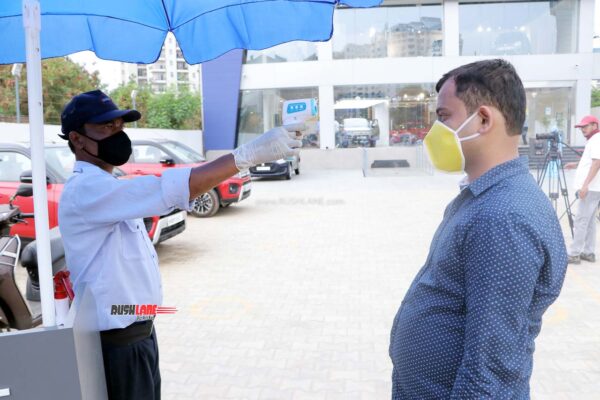Maruti Suzuki India has posted its worst ever quarterly performance since getting listed on the Bombay Stock Exchange
Q1 FY21 has been a low point for all manufacturers on account of Covid-19 pandemic related lockdown and restrictions. For the quarter, Maruti Suzuki India reported net loss of Rs 249.4 crore on the back of operating loss, and low revenue due to decline in sales. In comparison, profit in Q1 2020 stood at Rs 1,435.5 cr, and in Q4 2020 at 1,291.7 cr. There’s a first for everything, however unprecedented it may seem. Since being listed in July 2003, this is the first quarterly loss reported by MSIL.
Q1 FY 2020-21 Financial Results
Revenue from ops fell by 79.2 percent to Rs 4,106.5 cr from the comparable period. With a major duration of the quarter impacted by lockdown resulting in zero production and zero sales, production was restarted in a limited capacity in May 2020. Production through the quarter is equivalent to about ‘two weeks’ of regular working.
During the time, 76,599 vehicles were sold – 67,027 units in the domestic market, and 9,572 units in exports. Overall sals decline stood at 81 percent, down from 4,02,600 vehicles sold in corresponding period last fiscal. In Q1 FY21, domestic and exports volumes fell by 82 percent, and 66 percent, respectively.

Net sales is reported at Rs 3,677.5 cr. Net loss was estimated to be higher but was offset by lower operating expenses, higher fair-value gain on invested surplus (other income), and tax write back. Keeping in mind circumstances, the quarterly comparison means little.
EBITDA (earnings before interest, tax, depreciation and amortisation) loss stood at Rs 863.4 crore. EBITDA in Q1 FY2020 was reported at Rs 2,047.8 crore. Other income grew by 57.6 percent to Rs 1,318.3 cr aided by higher fair-value gain on the invested surplus. Total expenses for the quarter fell by 69.1 percent YoY to Rs 5,770.5 crore. Tax write-back for the said three months stood at Rs 96.3 cr. Expenses for the same period last year was reported at Rs 475.4 cr.
What Next?
Maruti has deep pockets with a strong balance sheet, and huge cash reserves and cash equivalent. MSIL reports things are starting to look upbeat based on July 2020 market behaviour. Demand is being fuelled by first time buyers as lockdown restrictions are lifted. Said demand is up at 90 percent of pre-COVID-19 levels, which entails the need to start another shift at the Gujarat plant. Demand recovery is estimated from increase in retail sales, bookings, and customer enquiries. Retail sales improvement is almost double compared to June wholesales, and has resulted is reducing inventory levels.
Emphasis on the need to maintain physical distancing may have fuelled enquiries for small cars from first time buyers. MSIL did increase production in July as compared to June. Maruti is now producing more than 4,000 cars a day. There’s no telling when the Indian auto industry will make a full recovery, but at present, it’s the MoM improvements that are indicative of progress.

